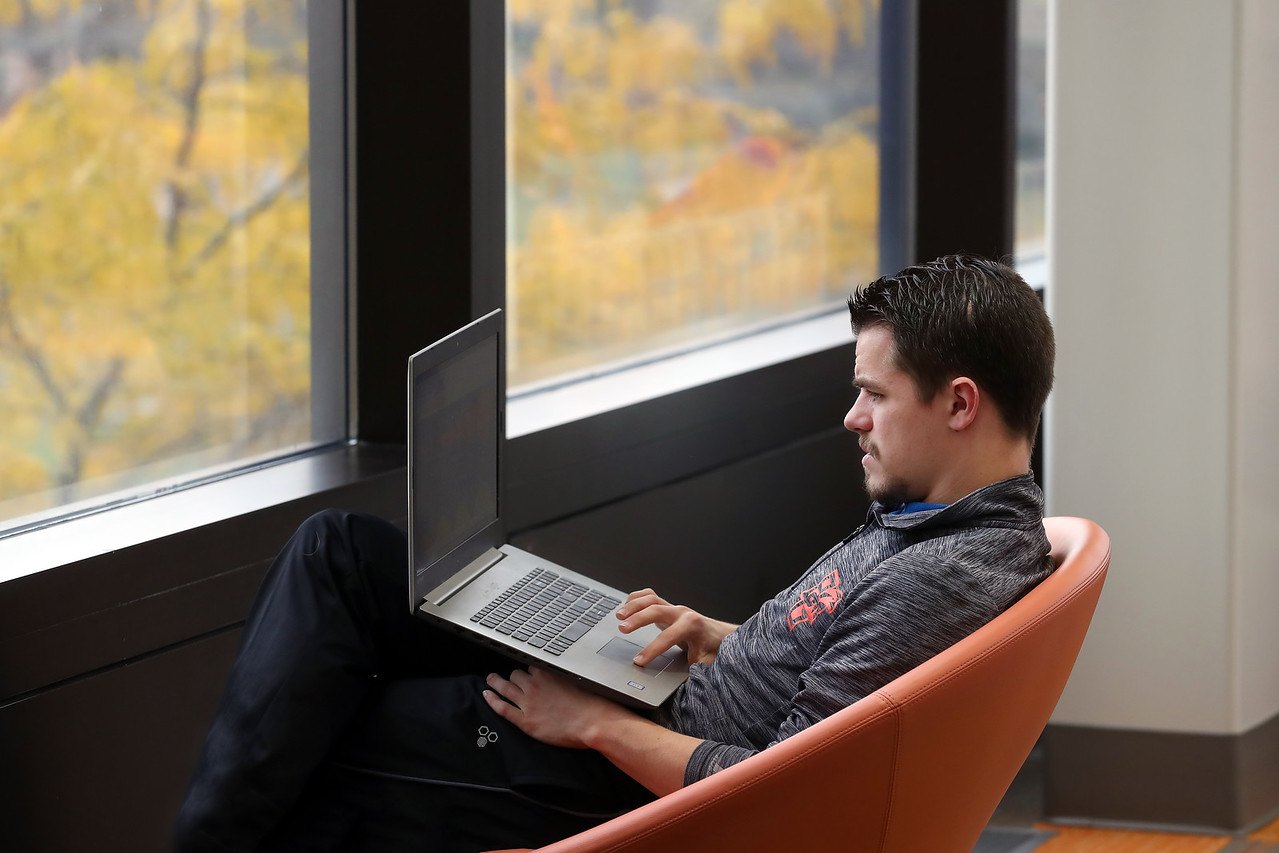Nationally recognized for student experience
The Wall Street Journal

Master of Arts (M.A.)
Mathematics: Applied Mathematics (Scientific Computation)
Demand for mathematicians who can transform theory into real-world solutions is growing at a rapid clip. A Master of Arts in applied mathematics and scientific computation from Bowling Green State University prepares you to step into this fast-moving frontier of data-fueled discovery and innovation.
The applied mathematics and scientific computation specialization transforms traditional mathematical training into a powerful toolkit for the digital age.
- Master high-performance scientific computing techniques.
- Develop expertise in numerical analysis.
- Learn to harness massive computational resources to solve problems that were impossible to address just decades ago.
With a master’s in applied mathematics from BGSU, you’re uniquely prepared to lead at the crossroads of math, computing and industry-specific progress.
Program highlights
- Small class sizes. Intentionally small class cohorts encourage more impactful learning and 1:1 mentorships with our outstanding faculty – accomplished scholars who are passionate about research and student success.
- Graduate assistantships. The Department of Mathematics and Statistics funds approximately 55 teaching assistantship positions awarded on a competitive basis. There are roughly 20 new openings annually. A typical stipend is $14,000.
- Active research faculty. Highlights of research projects by BGSU applied mathematics faculty include studies on:
- Numerical partial differential equations
- Numerical smoothness and optimal error estimations
- Inverse problems
- Multiphase porous media fluid flow
- Peer mentoring. Graduate students transitioning to instructor roles become better teachers through a collaborative community of peer mentors. The program provides teaching observations, direct constructive feedback and small group meetings. There’s also a school-supported Summer Head Start Program.
- Career development. Our extensive mathematics alumni network spans across academia, technology, finance, government, consulting and more – offering practical guidance, industry connections and career advancement opportunities.
Demand for mathematicians and statisticians is expected to increase 11% over the next decade – far faster than average.
#1 public university in Ohio for career prep
The Wall Street Journal
Career opportunities
The job outlook for applied mathematics/scientific computing is strong and growing, especially given society’s increasing reliance on advanced analytics, artificial intelligence and data-driven decision-making. National trends show those with jobs in applied mathematics can expect competitive salaries, strong stability, and access to leadership roles in both industry and research.
The rigorous applied mathematics degree combines advanced mathematical theory with state-of-the-art computational methods. It prepares you to tackle everything from climate modeling and financial risk analysis to artificial intelligence and biomedical research.
Employers across the map need experts who can use high-level math and scientific computing skills to model complex systems, solve real-world problems and build the computational tools that drive innovation.
With a master’s in applied mathematics and scientific computing, you’ll find career opportunities in industries like technology, finance, healthcare, defense, engineering, environmental science, logistics and advanced manufacturing. You’ll work on cutting-edge projects:
- Designing algorithms
- Optimizing systems
- Developing simulations
- Creating computational solutions that solve critical challenges and reshape the future
Career paths
- Computational genomics
- Predictive complex systems
- Computational chemistry for excited states
- Computational finance
- Population analytics
- Nanomaterials
- Computational materials chemist
Quick Facts from the Bureau of Labor Statistics
The average median salary for mathematicians is 90% higher than the median average for all occupations in the U.S
Curriculum
A Master of Arts in mathematics with a specialization in applied mathematics (scientific computation) can prepare graduates for direct entry into careers in business, industry, government and education OR for advanced degrees in mathematics, statistics, computer science or operations research.
Incoming students need a foundation of core linear algebra, advanced calculus, ordinary differential equations and a programming language, such as C, C++, Python, Java or Matlab – either before or soon after entry to the program.
Core coursework includes completion of:
- A one-semester course in analysis
- A two-semester sequence in scientific computation
- A two-semester course in applied mathematics
In total, students complete at least 30 semester hours of approved graduate-level coursework in mathematics and statistics – 18 hours of which must be at the 6000 level or higher.
A minimum 3.0 GPA is required to graduate. Admission to the BGSU mathematics Ph.D. program requires a minimum graduate-level 3.2 GPA.
Culminating experience
Students must complete a master’s thesis (counting for up to six credit hours) OR pass written comprehensive examinations.

Sample courses
- Real Analysis
- Iterative Solution of Nonlinear Equations in Several Variables
- Boundary Value Problems of Differential Equations
- Numerical Analysis of Partial Differential Equations
#1 university in Ohio – big or small, public or private – students would choose again
The Wall Street Journal
The mathematics M.A. with specialization in applied mathematics (scientific computation) is part of the Department of Mathematics and Statistics in the BGSU College of Arts and Sciences.
Accreditation
Bowling Green State University [BGSU] is accredited by the Higher Learning Commission. BGSU has been accredited by the Higher Learning Commission since 01/01/1916. The most recent reaffirmation of accreditation was received in 2022-2023, with our next reaffirmation of accreditation scheduled for 2032-2033. Questions should be directed to the Office of Institutional Effectiveness.
Request Information
Updated: 08/12/2025 08:44AM

